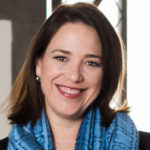 John Legend kicked off his “Darkness and Light” tour in the nave of The Riverside Church on Dec. 2, 2016. The days were ending early then; I walked through the chilly darkness to get there. The election had just spun the country into unprecedented division. We’d all just suffered family Thanksgiving dinners filled with winners and losers. I felt a distinct lack of hope. And when John sang his song, Love Me Now:
John Legend kicked off his “Darkness and Light” tour in the nave of The Riverside Church on Dec. 2, 2016. The days were ending early then; I walked through the chilly darkness to get there. The election had just spun the country into unprecedented division. We’d all just suffered family Thanksgiving dinners filled with winners and losers. I felt a distinct lack of hope. And when John sang his song, Love Me Now:
When we’ve done all that we could
To turn darkness into light, turn evil to good
Even when we try so hard
For that perfect kind of love, it could all fall apart.
The words seemed to narrate a reality I was living — we were living — right in that moment.
The work of a pastor, I’ve always thought, is to preach good news into our current reality. I knew that night that my people needed to hear a message of hope, a declaration that love will always prevail, that light will shine in the darkness. In a global sense and a personal sense, I really desperately needed that, too.
But inside I wondered and could never find the words to say aloud: what if it’s not true? What if the light never shines and the darkness falls forever and love doesn’t really win in the end?
It’s a legitimate, if terrifying question. The darkness seems so inky black these days, proclaiming a message of hope sometimes seems like a Pollyanna-ish denial of the evil swirling around us: policies that hurt our neighbors, corrupt government schemes, natural disasters, torch burnings and hate rising to the surface everywhere you look — there are too many to name.
As the news has continued to assault us from every side for what has been now almost a year, I find myself still struggling to find the right balance between naming darkness and preaching hope. But lately I’ve begun to suspect that this is actually the substance of our work in this moment: as leaders, as people of faith, as participants in the work of healing the world. Our work is to keep struggling to name darkness and articulate hope as we use our platforms to speak both to the people who belong to our communities and the larger groups in which we have influence.
We can’t we ignore the darkness like some deny climate change, just focus on the positive, whiten our teeth and smile bright for the camera, keep insisting that, “The more you talk about negative things in your life, the more you call them in. Speak victory, not defeat,” as some pastors would say.
But we can’t afford to give up the hope, either.
So, here’s where we start. We start by saying they are both here: darkness and light. This is the holy paradox of faith. I can see the darkness and yes, I can hold the hope. And I can also hold the question: What if it isn’t true in the end? And the answer: I don’t care. I have to hang onto the light in order to face the darkness.
